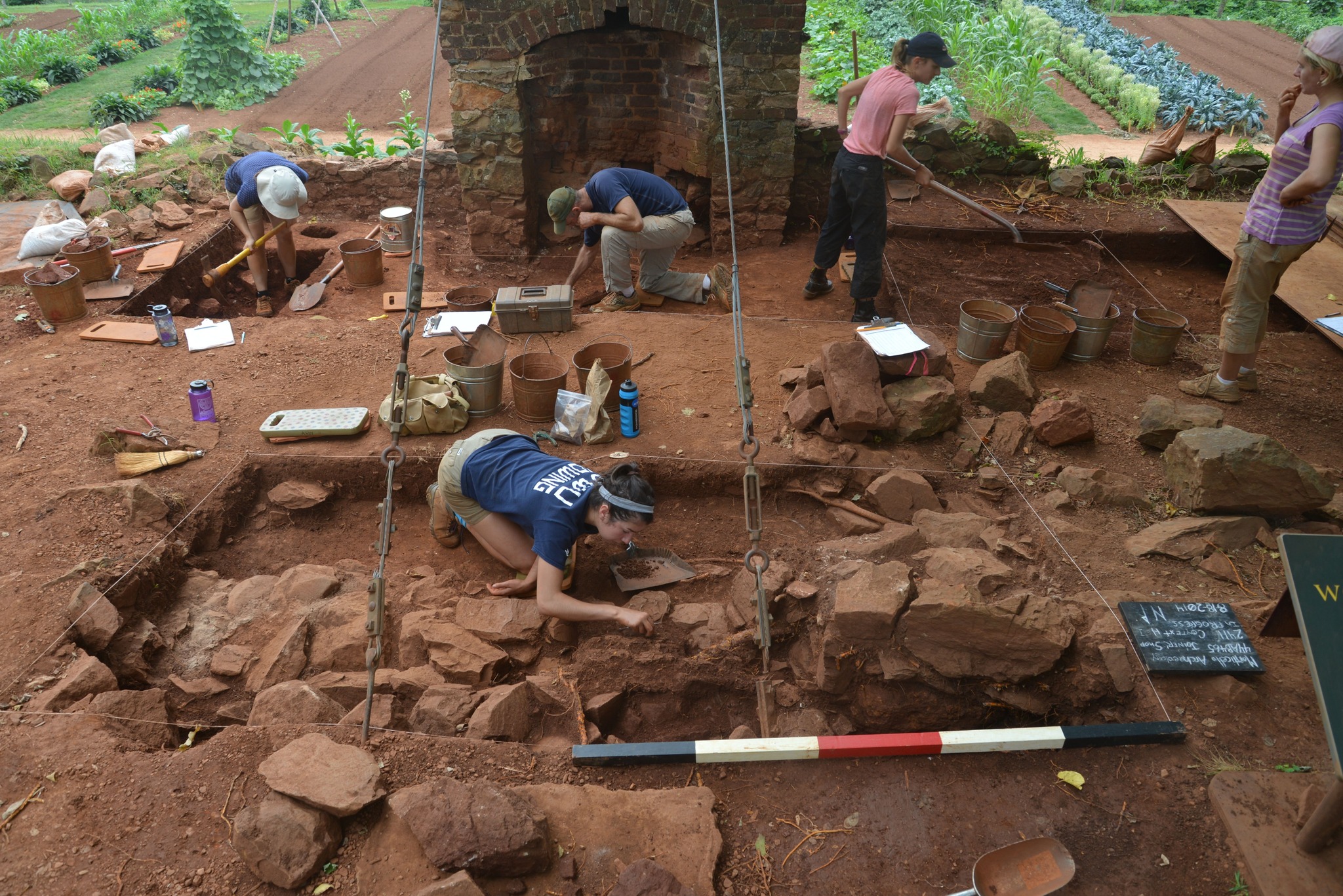Fieldwork

Location: Charlottesville, VA, US
Season: June 2, 2025 to July 11, 2025
Session Dates: June 2, 2025 - July 11, 2025
Application Deadline: April 4, 2025
Deadline Type: Exact Date
Website: http://www.monticello.org/fieldschool
Program Type:
Field School
RPA Certified:
No
Affiliation:
Monticello and the University of Virginia
Project Director:
Fraser D. Neiman, Department of Archaeology, Monticello and Department of Anthropology, University of Virginia
Project Description:
The Monticello-University of Virginia Field School offers a hands-on introduction to basic excavation, recording, and laboratory techniques in archaeology. The course emphasizes a scientific, multidisciplinary approach to doing landscape archaeology. It also provides the opportunity to contribute to cutting-edge research into the ecological and social dynamics that unfolded on Thomas Jefferson’s Monticello Plantation in the eighteenth and early nineteenth centuries. Technical topics covered include survey and excavation strategies as well as recovery techniques and analytical possibilities for deposits and the sediments they contain, soils, faunal remains, plant phytoliths and pollen, macrobotanicals, tree rings, and spatial distributions of artifacts across sites and landscapes. The course offers students an opportunity to learn from and interact with scholars specializing in digital archaeology, archaeological data analysis, geoarchaeology, zooarchaeology, paleoethnobotany, and dendrochronology.
Our fieldwork addresses changing patterns of land use and settlement on Thomas Jefferson’s Monticello Plantation from c. 1750 to 1860, along with their ecological and social causes and consequences. Toward the end of the 18th century, spurred by shifts in the Atlantic economy, Thomas Jefferson and planters across the Chesapeake region replaced tobacco cultivation with a more diversified agricultural regime, based around wheat. Our research is revealing the enormous implications of this shift for what the landscape looked like and the lives of the people, enslaved and free, who created it.
Visit us on the web for more information and application instructions .
For the latest on our ongoing archaeological research, like us on Facebook.
Period(s) of Occupation: Eighteenth and Early-Nineteenth Century Chesapeake
Notes:
The Monticello-UVA Field School emphasizes how a multidisciplinary scientific approach to field research in archaeology can enhance our understanding of the linked cultural and ecological processes responsible for changes in landscapes, settlement patterns, household organization, and the lives of all Monticello's residents, enslaved and free.
Project Size: 1-24 participants
Minimum Length of Stay for Volunteers: 6 weeks
Minimum Age: 18
Experience Required: No.
Room and Board Arrangements:
Air conditioned housing at the University of Virginia is available to students at an estimated cost of $43 per night or roughly $301 per week for a single room. Meals are available at an additional cost through University dining services, or students can choose to prepare their own meals. Numerous summer sublets are also available in Charlottesville, but students will need to make their own arrangements.
Academic Credit:
Six credits from the University of Virginia. Tuition rates are set by the University of Virginia and vary by residency status (see this link for details: https://summer.virginia.edu/tuition-and-fees-2025).
All students accepted into the field school will receive a tuition scholarship from Monticello worth half the UVA-mandated tuition. Taking into account this scholarship, tuition for 6 credits is $1,410 for undergraduates and $1,653 for graduate students who are Virginia residents. For non-residents, tuition is $5,208 for undergraduates and $3,351 for graduate students.
In addition to the tuition subsidy, each student will receive a $2,000 Fellowship from the International Center for Jefferson Studies to help with the remaining tuition and expenses.
Fraser D. Neiman
Department of Archaeology, Monticello, Box 316
Charlottesville
VA
22902
USA
Phone: 434 984 9812
The AIA is North America's largest and oldest nonprofit organization dedicated to archaeology. The Institute advances awareness, education, fieldwork, preservation, publication, and research of archaeological sites and cultural heritage throughout the world. Your contribution makes a difference.
Notifications